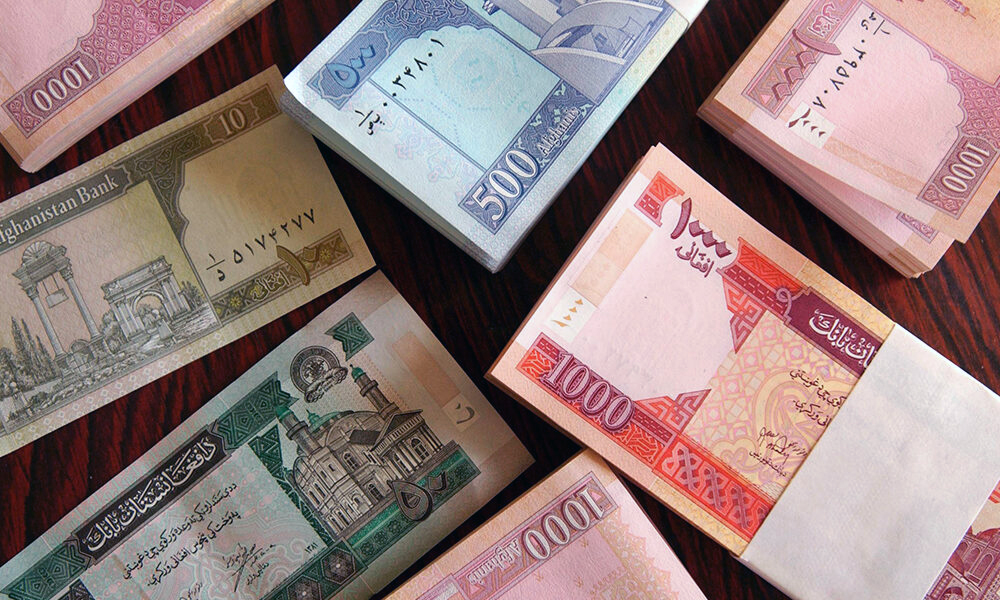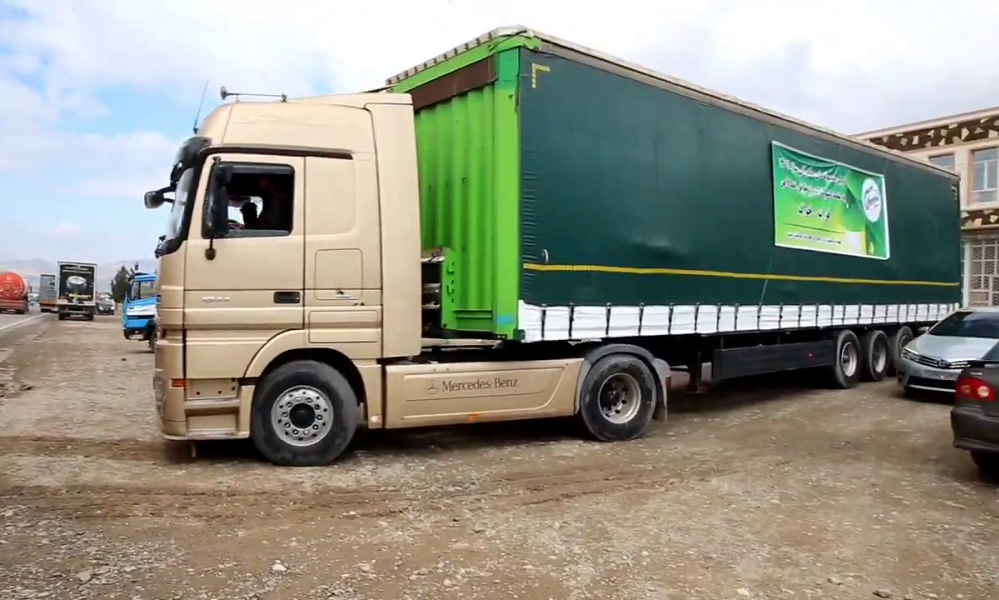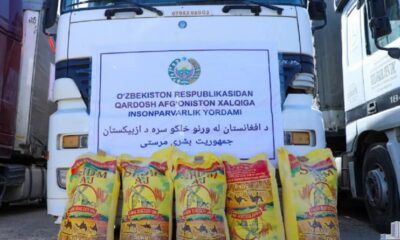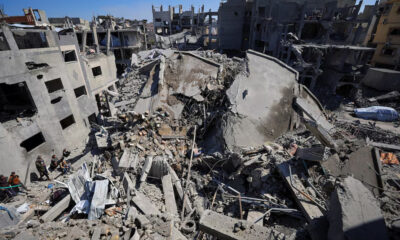Business
Afghanistan’s central bank gets shipment of new banknotes

A Polish firm delivered Afghani banknotes to Kabul this week after the United States paved the way for the Da Afghanistan Bank to make a payment via international banking systems, a member of the bank’s supreme council told Reuters on Wednesday.
The payment represents a shift for Afghanistan’s central bank, which has been largely cut off from the international financial system since the Islamic Emirate of Afghanistan (IEA) came into power last year.
State news outlet Bakhtar also reported that the shipment arrived on Wednesday.
The Afghan central bank held a contract with a Polish company for the printing of its banknotes but had been unable until early July to begin payment, Reuters reported.
Without access to fresh banknotes for more than a year, Afghanistan’s cash has been deteriorating, with notes torn in shreds or held together with sellotape, exacerbating the country’s liquidity crisis.
“Afghanistan’s markets run primarily on cash, but existing banknotes are crumbling …The Central Bank will be able to replace old and damaged banknotes, and this will improve the Afghan people’s ability to purchase food and other necessary items,” a U.S. State Department spokesperson said.
Shah Mehrabi, a member of the Afghan central bank’s supreme council, said assurances to banks and companies by the U.S. Treasury that they would not be prosecuted for allowing a transaction by Afghanistan’s central bank had been instrumental.
“These transactions that were facilitated by the Treasury are welcomed by all Afghans,” Mehrabi said.
He said the banknotes began arriving on Tuesday. The contract was for notes valued at 10 billion Afghanis, mostly in small denominations. A second contract with a French company had been reached for a similar value.
A spokesperson for Afghanistan’s finance ministry told Reuters that new banknotes would be used solely by the central bank for replacing old notes, not to fund the budget.
Mehrabi said that the bank would release its financial statements to ensure the cash was accounted for.
He said the bank had agreed to be subject to third party monitoring and the U.S. Treasury had approved of an agency to carry out the monitoring.
Business
36 mining contracts inked over the past year: Mines ministry

The Ministry of Mines and Petroleum says it has signed 36 large and small mining contracts, with a total value of $1.3 billion over the past year.
Officials from the ministry stated that these contracts include 10 large mines, 25 small mines, as well as projects related to cement, salt, marble, and a major gas extraction contract with Uzbekistan, all signed with both domestic and foreign companies.
Meanwhile, economic experts have emphasized the importance of increasing investments in the mining sector for the country’s economic growth. They have stressed that priority in mining contracts should be given to domestic companies.
“It is better to prioritize domestic investors over foreign ones,” said Kamaluddin Kakar, an economic expert.
In the meantime, members of the private sector also stated that if both foreign companies and Afghan investors can partner in the mining sector, this will not only foster investment development in the country but also bring positive changes in capacity building within the mining extraction sector.
Business
Afghanistan ships first consignment to Europe via Khaf-Herat railway

The press office of the Herat governor has announced the export of Afghanistan’s first shipment via the Khaf-Herat railway to Europe.
According to a statement from the office, the shipment includes 200 tons of dried fruits worth $1.2 million, which were exported to Turkey and Europe through the Khaf-Herat railway in the presence of Islam Jar, the governor of this province, and the Iranian Consul General.
The exported dried fruits in this shipment include pistachios, raisins, almonds, and pine nuts.
The statement added that over the past three months, more than 35,000 tons of goods have been transferred via the Khaf-Herat railway.
Business
Russia’s LPG exports to Afghanistan boom as Europe shuns it
The exports to Afghanistan, the main consumer of Russia’s LPG in the region, rose by 52% for the period to 71,000 tons.

Russia’s exports of liquefied petroleum gas (LPG) to Afghanistan and ex-Soviet states in Central Asia have jumped following introduction of European Union sanctions against Moscow at the end of 2024, industry sources said on Wednesday, Reuters reported.
The European Union’s sanctions against Russia’s LPG over the war in Ukraine took effect on December 20. The restrictions were proposed last year by Poland, one of Russia’s largest LPG importers.
LPG, or propane and butane, is mainly used as fuel for cars, heating and to produce other petrochemicals.
According to the industry sources, railway supplies of LPG from Russia’s plants, including the Kazrosgas joint venture with Kazakhstan, jumped to the region by 80% year on year in January – February to 140,000 metric tons, read the report.
The exports to Afghanistan, the main consumer of Russia’s LPG in the region, rose by 52% for the period to 71,000 tons.
Traders expect great scope for more supplies to Afghanistan, where annual demand for LPG is seen at around 700,000 tons per year.
-

 Sport5 days ago
Sport5 days agoACB names Afghanistan A squad for tri-nation series
-

 Latest News5 days ago
Latest News5 days agoUzbekistan sends essential food aid to Afghanistan
-

 International Sports4 days ago
International Sports4 days agoIPL 2025: Last over drama; Ashutosh Sharma clinches win for Delhi Capitals
-

 Regional4 days ago
Regional4 days agoEgypt makes new proposal to restore Gaza truce as Israeli strikes kill 65
-

 Sport4 days ago
Sport4 days agoAfghanistan eliminated from Asian Beach Soccer Championship
-

 Latest News4 days ago
Latest News4 days agoNorwegian Refugee Council cuts back on essential humanitarian services in Afghanistan
-

 Latest News4 days ago
Latest News4 days agoUN warns over 4 million Afghan girls will be deprived of education by 2030 if ban continues
-

 World3 days ago
World3 days agoSecretive Chinese network tries to lure fired US federal workers, research shows

























